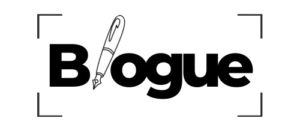A major cybersecurity breach targeted Andrew Tate’s widely known online program, Hustler’s University (now called The Real World). The incident, orchestrated by a group of hackers, exposed significant vulnerabilities in the platform’s security. This breach resulted in the leak of 14 GB of data, including usernames, email addresses, and private communications of over 700,000 members. The ramifications of this attack extend beyond the compromised data, leaving many to question the platform’s future.
The Scope of the Breach
The leaked data revealed sensitive user information and a treasure trove of internal content, including course material aimed at teaching members skills to generate wealth. Additionally, discussions from public and private chat rooms on topics such as AI automation, crypto investments, and content creation were exposed. This incident has put the platform’s credibility under scrutiny.
Hackers reportedly described the website’s security measures as “hilariously insecure.” Evidence suggests that reverse engineering the platform’s technology stack played a significant role in the breach. Through analysis, it was discovered that the platform’s stack included technologies such as TypeScript, Tailwind CSS, WebSockets, and REST APIs. Additionally, its mobile apps were built using Capacitor, a tool for converting web apps into mobile apps.
Allegations of Open-Source Code Misuse
One of the more controversial aspects of this story involves allegations that Hustler’s University used a closed-source fork of Revolt, an open-source chat platform. The developers of Revolt previously accused the program of violating its AGPL license by not adhering to open-source requirements. While this matter seemed unresolved, the recent hack has brought these allegations back into the spotlight.
Security Oversights
The hackers reportedly exploited several key vulnerabilities. Notably, the website’s JavaScript bundle contained unminified code with comments, which made it easier for attackers to reverse engineer. Additionally, the API’s authentication mechanisms appeared insufficient, potentially allowing attackers to bypass security measures.
Hackers’ Messages
The hackers made their presence known in a bold and irreverent way. They infiltrated the University’s primary chat rooms and spammed them with emojis and memes—including symbols of inclusivity like the transgender flag and feminist imagery. Their actions were particularly notable as they coincided with Andrew Tate’s live stream on Rumble, adding to the public embarrassment.
Fallout for Members
While Andrew Tate himself was the target of much of the criticism, the real victims of this breach are the members of Hustler’s University. Many joined with the hope of gaining valuable knowledge and a respected certification, only to find their data compromised and their investment questioned. The leaked data included usernames and emails that could now be used maliciously.
The platform reportedly has over 100,000 active members, generating an estimated $5 million in monthly revenue. This breach, however, raises concerns about how that revenue is being allocated and whether adequate investments are being made in cybersecurity.
Lessons Learned
This incident underscores the importance of robust cybersecurity practices, particularly for platforms handling large volumes of sensitive data. Companies should prioritize:
- Regular security audits to identify and address vulnerabilities.
- Obfuscating sensitive code and limiting exposed data in frontend bundles.
- Transparent adherence to open-source licenses to maintain trust within the developer community.
Closing Thoughts
For Hustler’s University, the damage goes beyond financial or technical losses. The trust of its members has been deeply shaken, and its reputation as a secure and reputable platform has been tarnished. Moving forward, a thorough reassessment of its security measures and ethical practices will be essential to rebuild credibility.
In an era where digital security is paramount, this breach serves as a stark reminder of what can happen when vulnerabilities are overlooked. For members, the lesson may be just as valuable: always evaluate the security and integrity of any platform you choose to trust with your data.













































